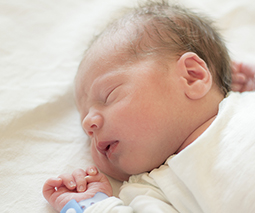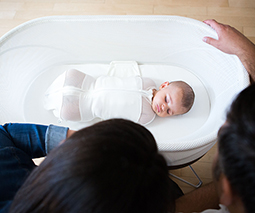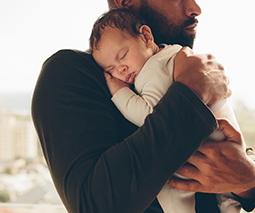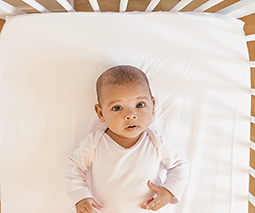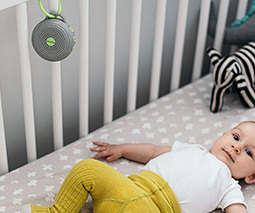Top five baby sleep myths – busted!
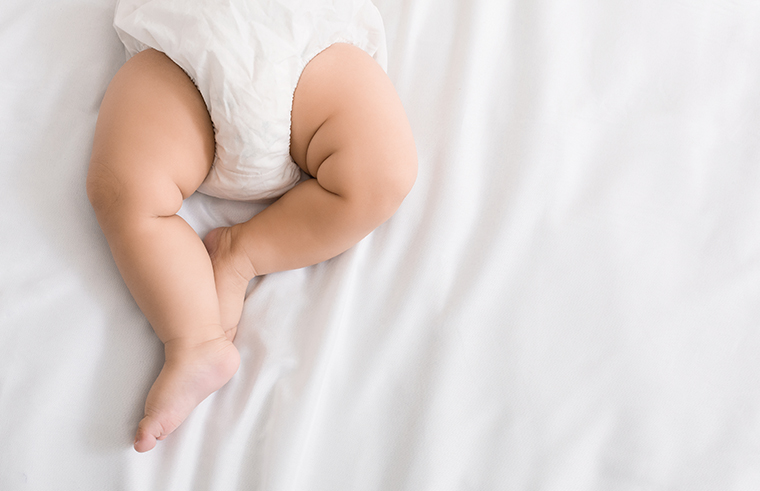
If there’s one thing that causes the most worry for new parents, it’s sleep – usually the lack thereof. We’re constantly asked if our baby is a ‘good sleeper’ or if they’re ‘sleeping through‘.
Here’s a newsflash – babies are all individual and they will feed, sleep and generally exist in totally different ways.
One size most certainly doesn’t fit all, so we’ve consulted an expert to set the record straight on the top five baby sleep myths.
Whoever came up with the phrase ‘sleeping like a baby‘ really needs to take a good, hard look at themselves.
Babies are incredibly complex beings, who do everything to the beat of their own drum. Certified child sleep consultant Katie Forsythe, from The Baby Sleep Company has lined up five baby sleep myths, just so she can knock ’em down!
Myth 1: Babies should sleep through the night at 12 weeks
Katie explains to Babyology that after you have a baby, there’s immense pressure to get them to sleep through the night. “While it would be nice to get a full night’s sleep again quickly, the reality is that there is no one certain age that all babies should be sleeping through the night. If all of the stars align then it is certainly possible that a baby will sleep through at 12 weeks, but it’s not something we aim for.
“We never recommend sleep training with the goal to sleep through the night until at least six months of age and even then it is dependent on a range of factors like growth, development and the establishment of solids.”
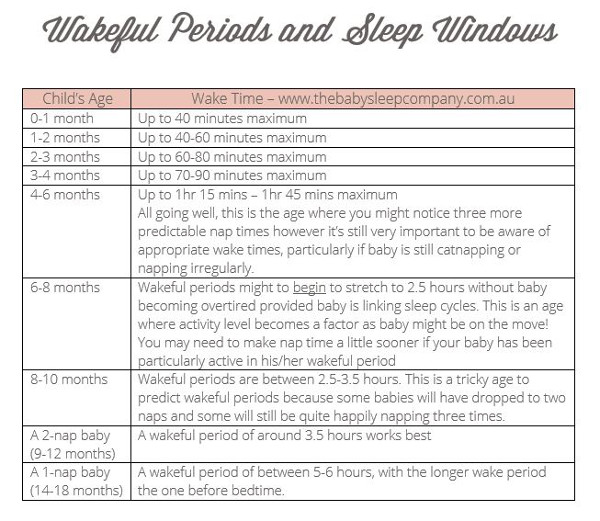
Myth 2: Babies should have a set bedtime
The Baby Sleep Company’s informative Wakeful Periods and Sleep Windows chart is a great guide to helping you work out when your baby’s bedtime should be.
“Note the time your baby woke from her last nap and add on the age-appropriate wakeful period to work out what time she will need to go down for the evening,” Katie says. “As your baby grows and develops she will be able to last longer between sleeps which will naturally translate to more time awake during the daytime. When working out your baby’s bedtime, it’s important to note that the wakeful periods tend to extend as the day continues so the awake time between last nap and bedtime will normally be the longest stretch your baby is awake.”
Of course, once again, it’s key to point out that not all babies are the same, and you may find your baby is able stay awake longer, or may not be able to last as long between naps.
Myth 3: Babies will sleep through once they start solids
This is one myth that parents heading into solids territory cling to, in the hope their baby will magically start sleeping for longer night stretches once their bellies are full of food.
“While it is possible that a previously well-slept baby might start waking when they need to start solids, it’s very unlikely that starting solids will magically help a poorly sleeping baby suddenly sleep through,” Katie explains.
She insists that if your baby is regularly waking and needing you to help them get back to sleep by rocking or replacing a dummy, starting solids probably won’t impact night waking.
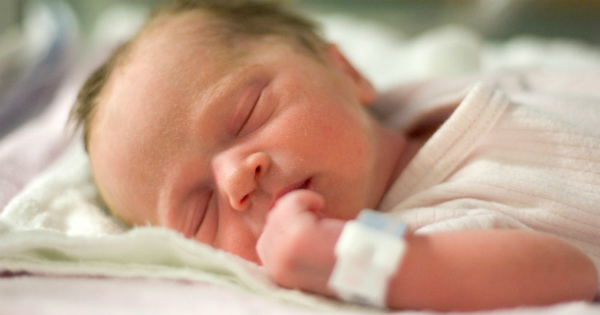
Myth 4: Babies should nap in a room with daylight to teach them the difference between night and day
Katie says: “As any shift-working adult will attest, humans sleep best in the dark. It is the presence of natural light that tells the human body to suppress the secretion of melatonin, which is our sleepy hormone. We didn’t become the top species on the planet because a couple of hours of darkness during the day can disrupt our whole circadian rhythm.”
Her top tips are that the nursery should be too dark to read a book in front of you, because anything lighter may be too stimulating, which isn’t ideal for good napping habits.
Myth 5: Four month old babies should be linking sleep cycles during the day
“There is a lot of pressure on parents to get their little ones having long naps during the day from a very young age, when in fact it’s not uncommon for babies to only nap for one sleep cycle at a time during the day all the way up to around six months of age.”
According to Katie, if the room environment is optimal (she says her top three most important factors are the right temperature, darkness and white noise), you stick to the wakeful periods and you baby is sleeping well at night, then, “there’s nothing wrong with having more frequent, short naps, as long as they add up to the total amount of day sleep needed for their age”.
If you’re keen to see if your older child is getting enough sleep, take a look at the bedtime chart we’ve previously featured. And sweet dreams!
 Need some more baby sleep advice? Our Parent School sleep experts can help. Click to find out more or book a one-on-one session.
Need some more baby sleep advice? Our Parent School sleep experts can help. Click to find out more or book a one-on-one session.

